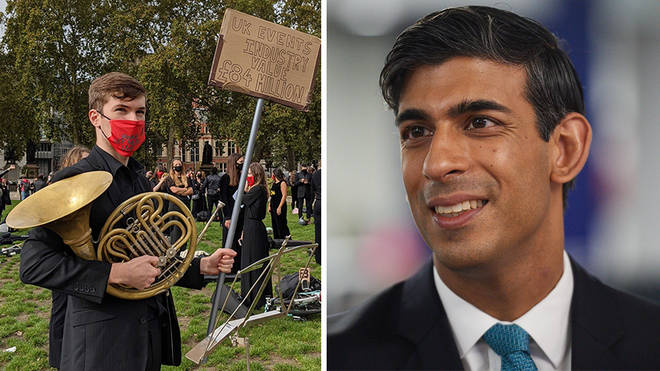Orquestra de rua : les cordes de la favela
Au Brésil, quatre jeunes musiciens issus d’une favela s’emploient à démocratiser la musique dans les quartiers défavorisés. Avec leur quatuor, ils possèdent deux casquettes, musiciens de rues professeurs bénévoles dans la favela. Un reportage de Florian Royer.
Les passants qui traversent chaque jour la place Floriano, au centre de Rio de Janeiro, ont pour habitude d’entendre le bruit des moteurs et les cloches des tramways. Mais parfois, la musique d’un quatuor à cordes atténue le vacarme de l’immense carrefour. Deux violons, un alto et un violoncelle, dont jouent quatre musiciens, à peine entrés dans la vingtaine : Juliane Souza, Glaucia Maciel, Jessica et Lucas Freitas.
Orquestra de rua, le nom qu’ils ont donné à leur formation, est né en 2017. A peine sortis de l’adolescence, ils donnaient un petit concert privé – ils ne se connaissaient alors pas – la représentation terminée, personne ne leur a proposé de quoi manger. « Nous avons pris nos instruments et sommes allés jouer à l’extérieur afin de gagner quelques pièces pour acheter le repas du soir », se remémore Juliane, une des violonistes. C’est ainsi que l’orchestre a vu le jour, directement dans une rue de Rio. Le nom s’imposait : Orquestra de rua.

Orquestra de rua: the strings of the favela
In Brazil, four young musicians from a favela are working to democratise music in disadvantaged neighbourhoods. With their quartet, they wear two hats and are street musicians who volunteer as teachers in the favela. A report by Florian Royer.
Passers-by who cross the Floriano square in the centre of Rio de Janeiro every day are used to hearing the sound of engines and tram bells. But sometimes, the music of a string quartet softens the din of the immense crossroads. Two violins, a viola and a cello, played by four musicians who are barely in their twenties: Juliane Souza, Glaucia Maciel, Jessica and Lucas Freitas.
Orquestra de rua, the name they gave to their formation, was born in 2017. Just out of their teens, they gave a small private concert – they didn’t know each other then – and when the performance was over, nobody offered them anything to eat. “We took our instruments and went to play outside to earn a few coins to buy the evening meal,” recalls Juliane, one of the violinists. That’s how the orchestra came into being, right in a street in Rio. The name was obvious: Orquestra de rua.
Zwei Gramophone Awards nach Deutschland
Bei der Verleihung der britischen Gramophone Classical Music Awards sind am Dienstag Abend auch zwei Auszeichnungen nach Deutschland gegangen. Der Pianist Igor Levit wurde zum Künstler des Jahres gekürt, wie die Zeitschrift “Gramophone” mitteilte. Den Sonderpreis Beethoven250 erhielten das Deutsche Symphonie-Orchester Berlin und Pianist Martin Helmchen für die Aufnahme von Beethovens Klavierkonzerten Nr. 2 und 5 unter der Leitung von Andrew Manze.
Für sein Lebenswerk wurde der israelisch-amerikanische Geiger Itzhak Perlman geehrt. Das Philadelphia Orchestra wählten die “Gramophone”-Leser zum Orchester. Die britische Sopranistin Natalya Romaniw erhielt den Preis als “Young Artist of the Year”.

Two Gramophone Awards to Germany
At the presentation of the British Gramophone Classical Music Awards on Tuesday evening, two awards also went to Germany. The pianist Igor Levit was named Artist of the Year, according to the magazine “Gramophone”. The special prize Beethoven 250 was awarded to the Deutsches Symphonie-Orchester Berlin and pianist Martin Helmchen for their recording of Beethoven’s Piano Concertos No. 2 and 5 under the baton of Andrew Manze.
The Israeli-American violinist Itzhak Perlman was honoured for his life’s work. The Philadelphia Orchestra was chosen as the orchestra by the “Gramophone” readers. The British soprano Natalya Romaniw received the award as “Young Artist of the Year”.
Chancellor Rishi Sunak appears to suggest struggling musicians should get a new job
Chancellor Rishi Sunak has appeared to suggest, in an interview with ITV News, that struggling musicians and other arts workers should retrain and get a new job.
When asked whether arts workers should simply try and find another job in a different sector, Sunak said: “I can’t pretend that everyone can do exactly the same job that they were doing at the beginning of this crisis. That’s why we’ve put a lot of our extra resource into trying to create new opportunities for people.”
When pressed further about whether he was really telling creatives to simply “go and get a different job” in a different sector, Sunak responded by saying: “That is fresh and new opportunity for people. That’s exactly what we should be doing.”
He added that the journalist, Daniel Hewitt, was mistaken in saying there are no creative jobs available, and “as in all walks of life, everyone’s having to adapt”.

 BACK
BACK